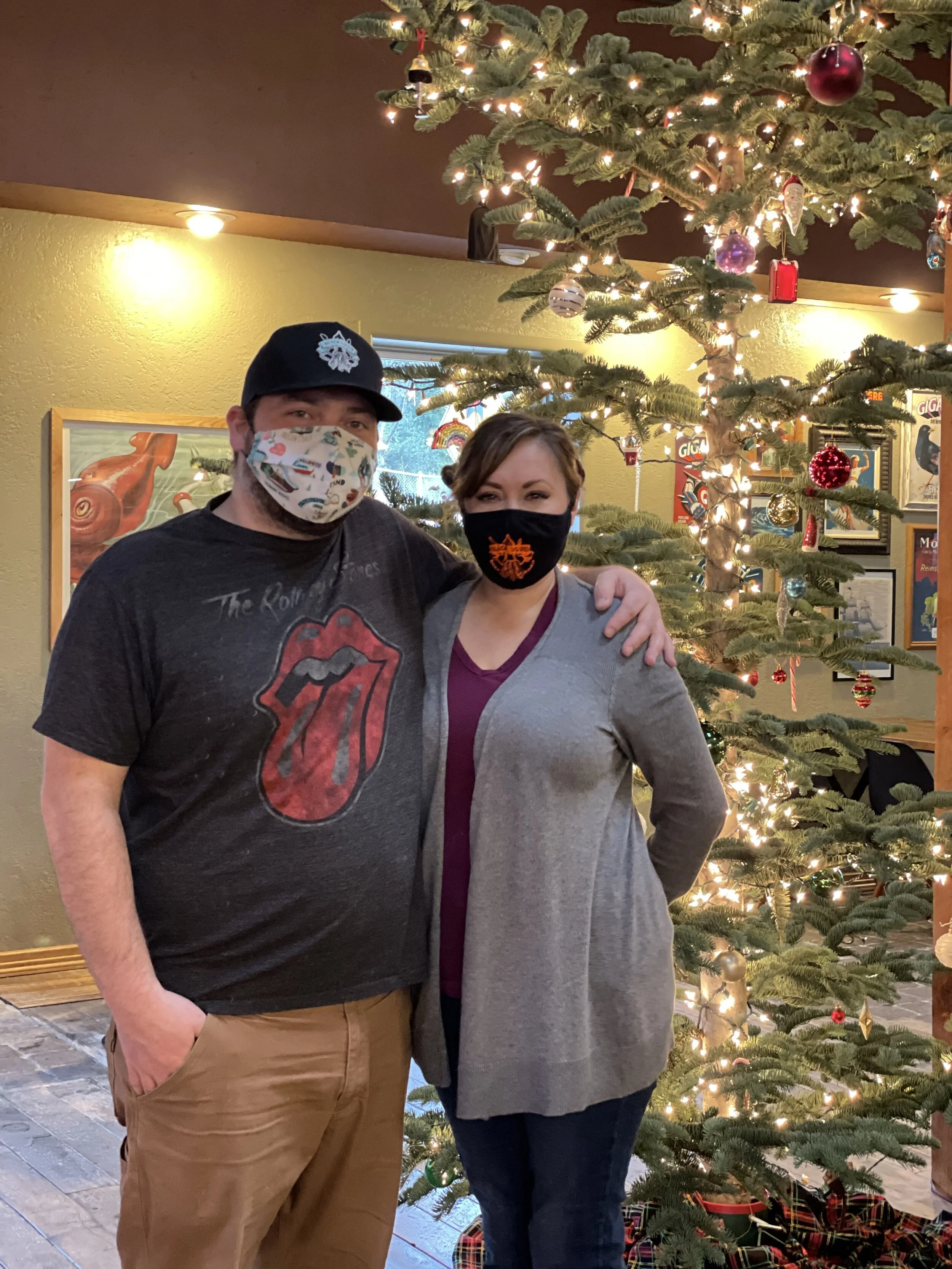A little 2020 hindsight
Andy and Sara Hill of The Black Squid Beer House
By Gretchen Ammerman
Oregon Coast TODAY
Every year, original Christmas tree ornaments debut, reflecting popular culture or humorously summing up the year. The current plethora of ornaments that show a dumpster erupting with flames says all that needs to be said about 2020.
Here on the Central Coast, we got an extra one-two punch, with a tourist-based economy pummeled by COVID-19 and the Echo Mountain Complex fire that left hundreds homeless.
But as we crest the hill to a new year, it can’t hurt to point to a few positive things that came out of this metaphorical dumpster fire. One theme seems to particularly stand out when you ask people what they feel grateful for in spite of it all. If represented by a Christmas decoration, the word printed on it would be “community.”
“When North Lincoln County got evacuated and our neighbors opened their hearts, homes and checkbooks, it was really quite remarkable,” said Oregon State Representative David Gomberg.
“The fire came through our neighborhood and we thought we’d lose our home; we didn’t, but a third of our neighbors did. Now we’re looking toward recovery and rebuilding and not only seeing those same neighbors helping each other, but every day we see armies of people that didn’t even have homes here coming with shovels and pick-up trucks to help people who weren’t as lucky as we were.”
One of the struggles Gomberg has faced has been trying to help businesses that locals and visitors to the coast depend on, like restaurants.
“We’re trying to get the allocation of relief funds to reflect that we’re one of the places with businesses that have been disproportionately affected by the pandemic,” he said. “We have heroes out here fighting really hard to support them, like Dave [Price, vice president, Engagement & Entrepreneurship for the Oregon Coast Community College] and the county offices trying to get resources out as fast and as fairly as they can.”
Price heads the college’s Small Business Development Center.
“There are people out there that say good things about the SBDC team because we did three years’ worth of work in a few months,” Price said. “It really was our finest hour.”
Though Price acknowledges that businesses have shuttered through no fault of the owners, he has seen some impressive work by others that have been able to ride out the storm, and developments with potential long-term benefits.
“My biggest takeaway is that this has forged relationships across the county that didn’t exist before,” he said. “I was on a conference call the other day that included local mayors, and there were people on it that had never spoken before. We were able to get a good lay of the land for how things are going in all these different towns and I can see that having huge dividends in the future.”
The steady support from locals and regular visitors has helped small businesses like the Black Squid Beer House in Lincoln City, owned and operated by Sara and Andy Hill, to make it through the worst of the restrictions on indoor seating.
“One of the things we’ve heard is that some of our customers didn’t realize the extent of our refrigerated bottles section,” Sara said. “It’s been really tough but we’re getting by.”
Another positive, seen around the country, was the increase in pet adoptions due to people having more free time and working from home. So much so that people that wanted to adopt began finding it difficult to find available pets.
Adoptions in Lincoln County were especially difficult, as COVID-19 was just an also-ran for the Lincoln County Animal Shelter, already operating out of temporary housing after a black mold infestation sickened a staff member and caused the permanent closure of their main building and kennels.
“It’s hard to compare adoption rates because our space is so much smaller right now,” said director Laura Ireland. “But we did have 370 adoptions and 90 transfers to adoption-guaranteed places.”
COVID-19 restrictions meant the shelter also had to limit its use of volunteers.
“A lot of the community has stepped up and helped us in new ways, like we’ve expanded our foster network which is incredibly helpful,” Ireland said.
“We also partnered with humane societies around the state and organizations like the Cat Adoption Team. It was just a lot of people coming together to make sure we adopt out all the critters.”
A recent edition of the Salmon Drift Creek Watershed Council newsletter hits some highlights from their work on behalf of the physical environment.
“We usually do a fund-raiser at the end of the year but felt that wasn’t appropriate this year because so many people are suffering,” said board member Joanne Daschel "So we wanted to just let people know that we’re still here, and about some of the positive things that we’ve accomplished, with our partners’ help, in our work to maintain and restore our local watersheds for clean water and salmon.”
Completed projects include the Fraser Channel Restoration, visible from Highway 101 south of the Salmon River bridge; replacing 10 culverts and repairing the drainage from 15 others; native planting projects; and creek-side fencing on agricultural lands that helped stabilize stream banks and reduce erosion by keeping cattle and pollutants further from the stream.
A final take away from Representative Gomberg highlights one other, small, bright spot.
“We’ve all learned how to use Zoom,” he said. “I guess you can call that a win.”

